“89% of companies struggle with data & system integration that drives iPaaS adoption.” – Business Wire
With the boom of SaaS, individual teams pick the best-of-breed apps for their use case and proceed with their day-to-day activities. Say, for instance, the sales team can pick Salesforce CRM solutions, the marketing team works with HubSpot tools, the HR team with ServiceNow HRSD, and so on. This might be a cheesecake for individual teams.
But when it comes to C or V-level executives, exploring organizational insights and making decisions with coherent insights becomes tedious. To stay on the competitive edge, cater to customer needs, and get a holistic view, businesses must rapidly adapt to market changes & interconnect all the applications, systems, and data sources in a single roof.
That’s when organizations adopt iPaaS- The solution to streamline siloed business models.
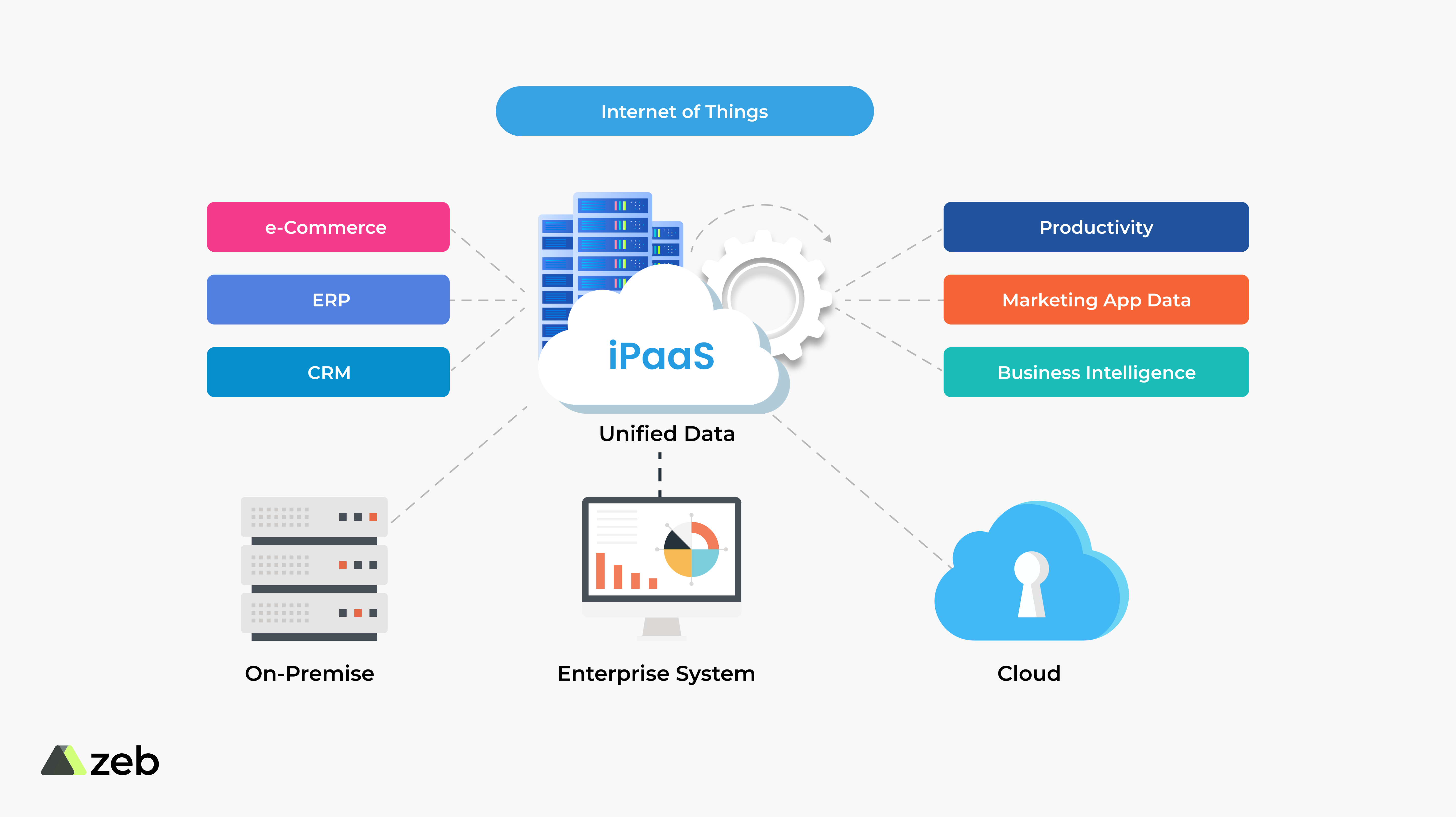
In this blog, let’s explore the top 10 reasons on why modern businesses must adopt iPaaS.
Continue Reading
Why must modern businesses adopt iPaaS? – Top 10 reasons
1. Empowers businesses with centralized management
iPaaS brings in SaaS, custom apps, IoT, data platforms, social profiles, devices, business intelligence, user identities, and much more under one roof.
This helps IT teams and other functional units achieve a coherent business process without any fuss. Managing business data, applications, systems, and security compliances in a single platform enhances visibility. And thereby organizations can easily slash technical debts, cyber risks, and monetary losses proactively.
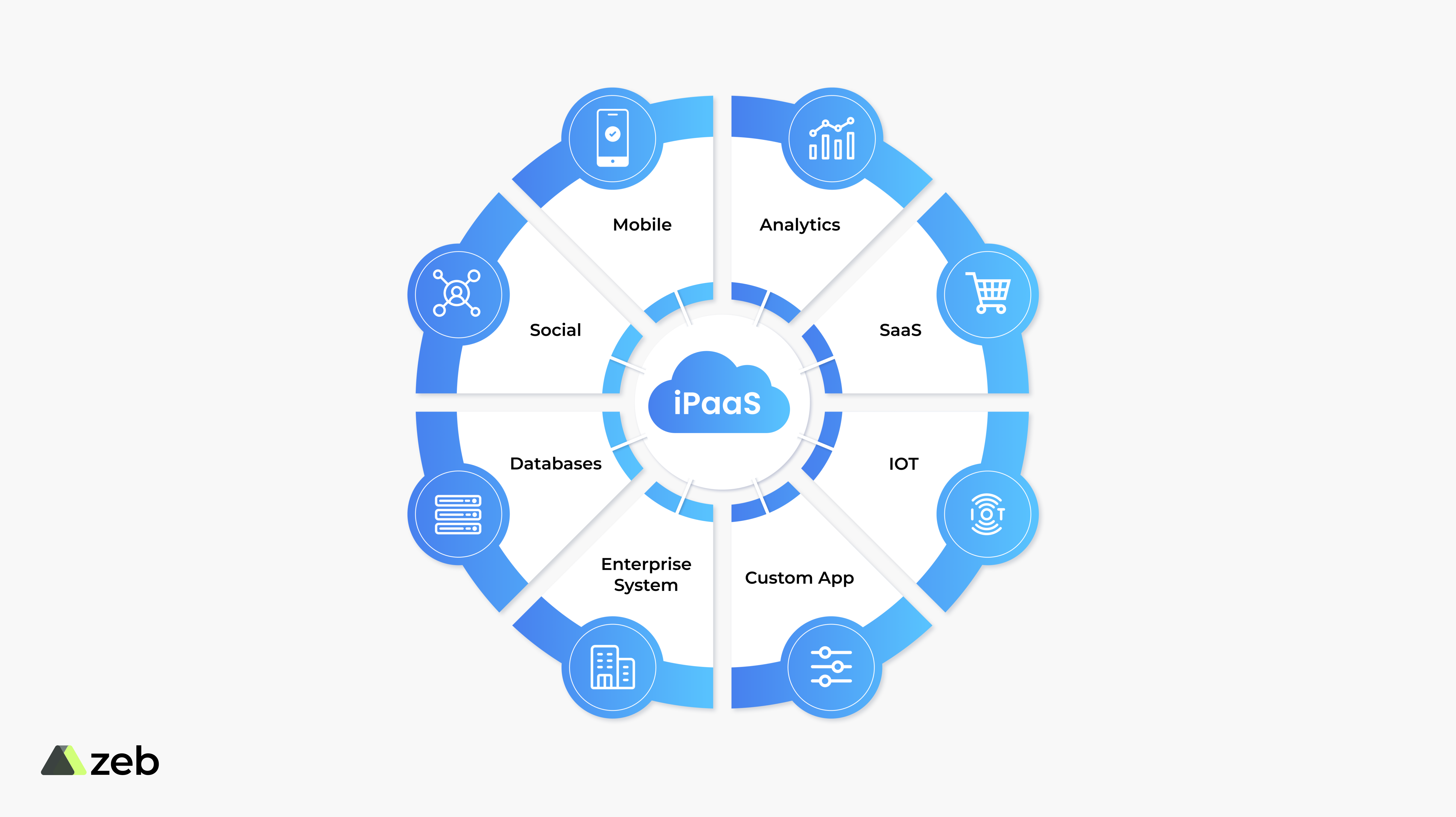
2. Unmatched customer satisfaction
Ranging from prospect onboarding to managing their current interests, every customer data can be easily managed in a centralized platform by connecting applications & data sources in iPaaS. By synchronizing every data drop of customers, businesses can render consistent & personalized user experience across the buyer’s journey.
The hyper-personalization of product suggestions, email pitches, services, and loyalty coupons help customers consider your brand for potential products/solutions.
3. Enables business intelligence
In today’s business landscape, it’s paramount to be data-driven. And to achieve that organizations require a center of excellence (COE) to leverage business datasets across functional units.
Integrating all the source touchpoints (on-prem/cloud/hybrid) into a streamlined data flow is mandate to enhance accessibility and grab real-time insights. With iPaaS businesses can seamlessly achieve a unified data hub and thereby utilize these datasets for business intelligence, artificial intelligence & machine learning.
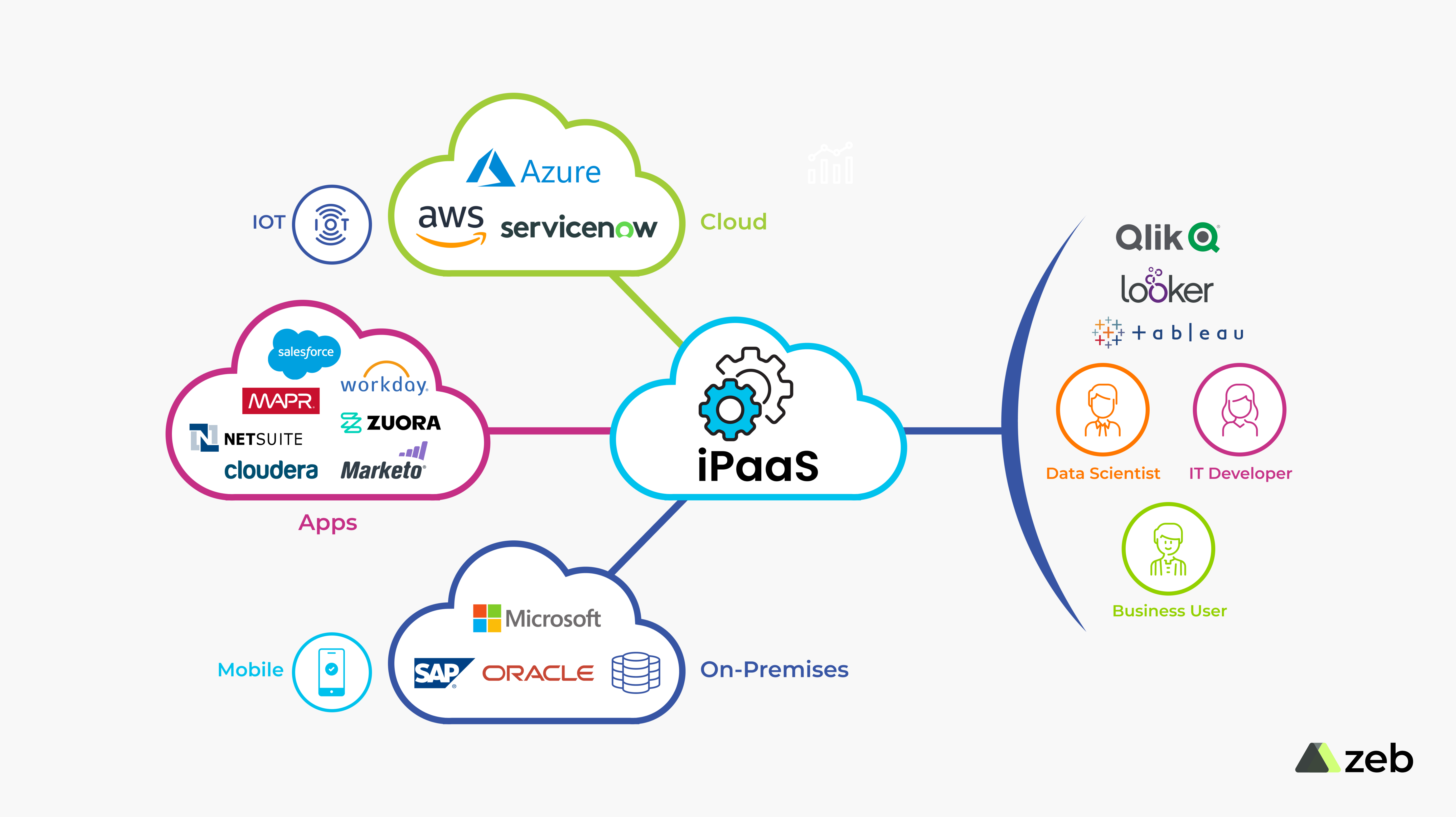
Stepping beyond data integration platforms, the beauty of iPaaS lies in interconnecting these insights & models to customer workflows and multiple systems for further processing. Overall, iPaaS offers a comprehensive view for C/V-level executives to make informed decisions in their endeavors.
4. Better data security & compliance
With the ever-growing threat landscape, businesses are pushed to follow stringent data security and compliances regardless of their size. Implementing an iPaaS solution by integrating multiple applications, tools, source touch points, and other systems prevents the risk of data silos, losses, and breaches to a greater extent.
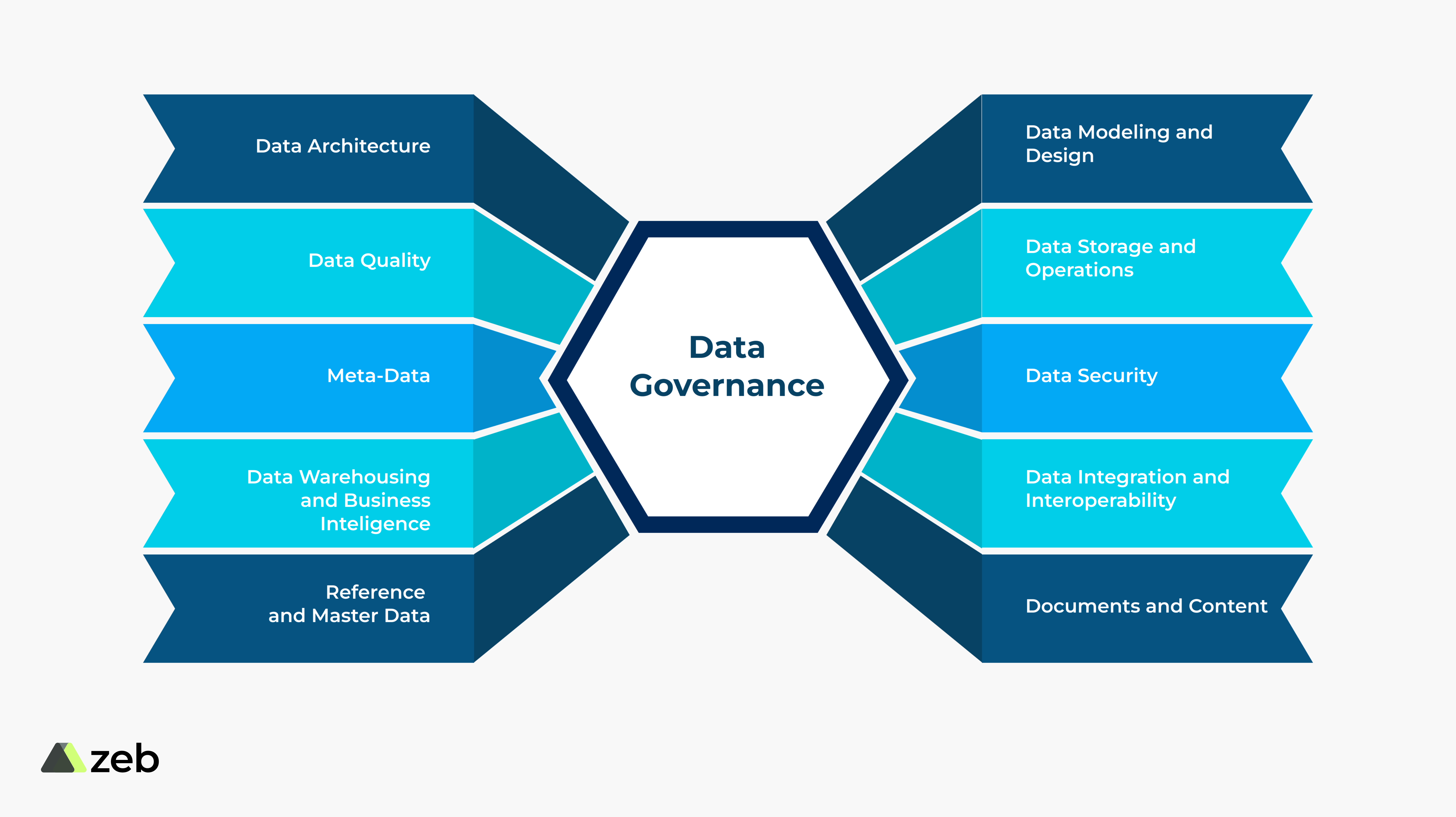
iPaaS solutions are in-built with advanced security features.
- Adheres to standard data compliances like GDPR, HIPAA, CCPA, SOC2, etc.
- Inherits SSO and other cutting-edge identity solutions like Open ID Connect, OAuth, Active Directories, and Role-Based Access Control (RBAC).
- In-depth API logging features.
5. Faster time to market
iPaaS platforms provide pre-built connectors, maps, transformations, APIs, development kits (SDKs), and much more to integrate applications, data sources, and systems. Be it on-prem, cloud, or hybrid infrastructure, iPaaS connects your entire IT landscape with a low/no coding environment.
As a result, your business could save hours of hand-coding, monitoring, deployment, and maintaining multiple integration points. Sophisticated iPaaS platforms generate the APIs for a wide variety of data sources within minutes, whereas conventional hand-coded strategies will take months.
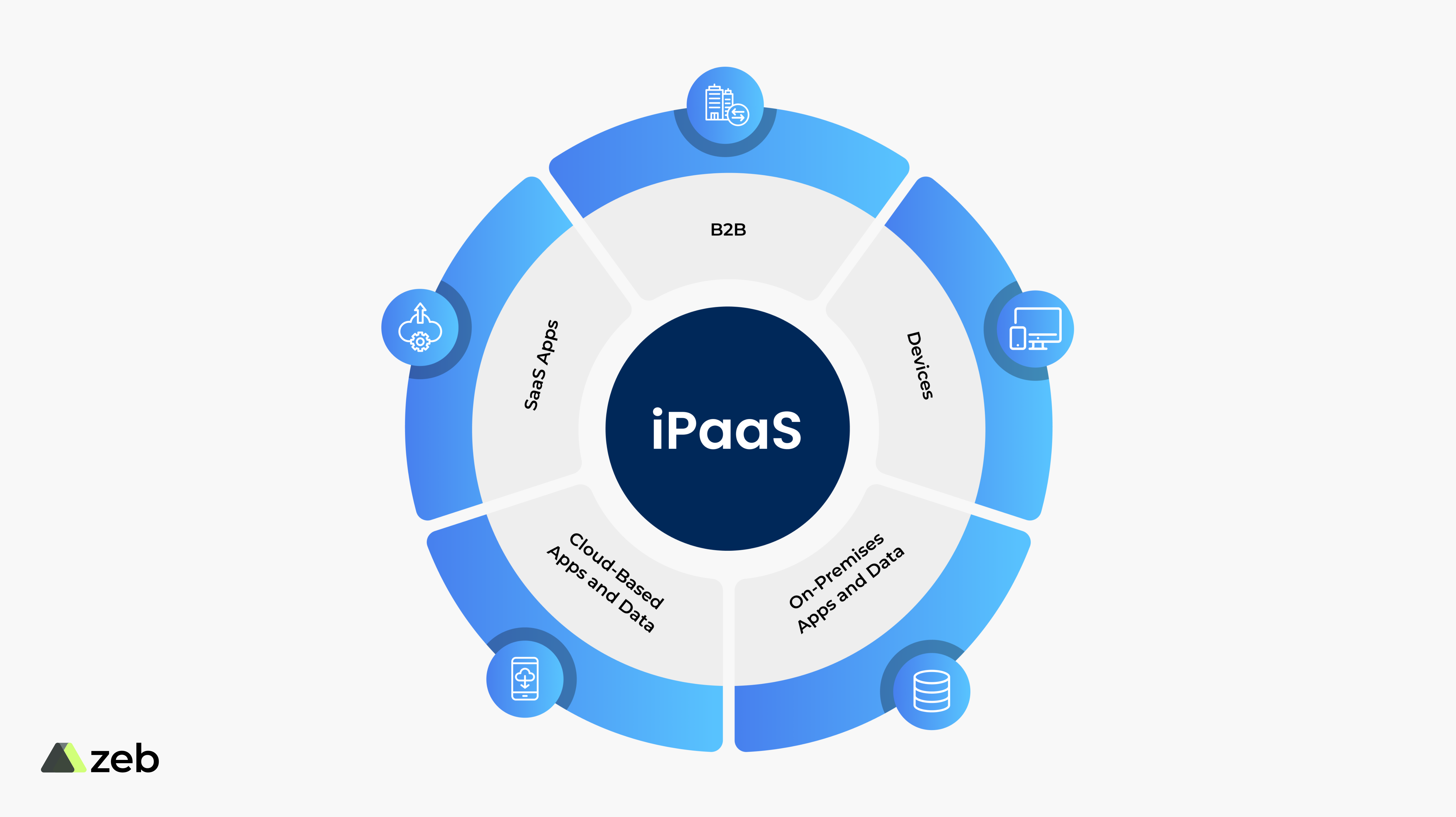
6. Limitless scalability
Be it adopting a new SaaS application, custom apps, data source, or third-party services, you can easily interconnect & expand the IT infrastructure with the unified iPaaS platform. Also, if your business demands shifting to modern cloud solutions, with iPaaS you can synchronize and sunset the legacy applications seamlessly.
iPaaS platforms eliminate the cost of skilled resources, hardware, and the labor-intensive efforts of hand-coded traditional integrations with uncompromised elasticity.
7. Efficiency & productivity
Establishing a robust iPaaS strategy for your business model can potentially slash manual or rudimentary tasks such as data quality checking, security & compliance audit, etc. Thereby, your teams could focus on strategic tasks and bring in innovative products & solutions.
8. User-friendly
The leading iPaaS platforms such as Boomi & MuleSoft render low-code/no-code programming environments that slash the hand-coding efforts to near zero. You needn’t hire in-house IT specialists to perform these integrations anymore. iPaaS offers drag-and-drop functionalities, pre-built connectors, templates, software development tool kits (SDKs), custom API generation tools, and much more that can be easily handled by business users too.
9. Drives hyper-automation
Interconnecting & synchronizing all your business apps and data under a hood helps you easily identify & implement potential automated workflows across the landscape. The automated workflows can range from data synchronization to sending push notifications on periodical checks to your customers.
10. Cost-effective
Conventionally, application adoption cost is directly proportional to integration costs. For every new application, system, or data source inherited, your IT teams must invest in hand-coded middleware that includes hardware, maintenance, and labor costs.
On the contrary, iPaaS connects all the systems in minutes and it has no binding costs such as infrastructure, maintenance, or labor. Also, the platform offers a convenient pay-as-you-go pricing model, and hence there is no huge capital drain for your organization.
What next? Let’s reach new horizons with limitless scalability
“66% of companies will invest in iPaaS platforms to address data integration & automation challenges, whereas another 27% have already done!”- Business Wire
If you’re striving to build an iPaaS strategy from scratch or looking forward to migrating from legacy integration platforms to iPaaS, we’re here to help you in every step ahead
Ranging from analyzing your business landscape to user adoption training, we serve as an extension of your team and build robust iPaaS solutions for your organization.